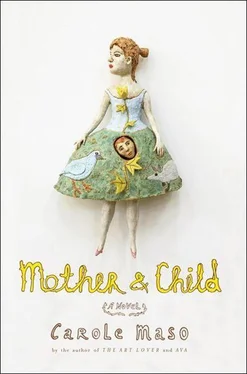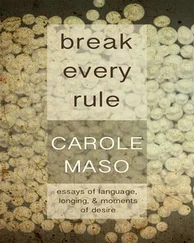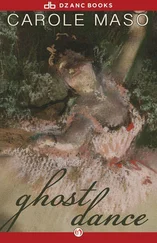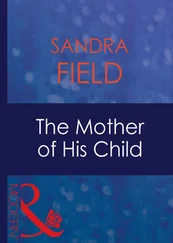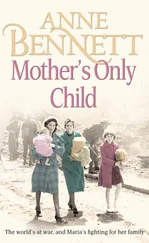She couldn’t seem to absorb the complex sentences being spoken on the television news anymore though. They came at her in such a way that she became disoriented and incapable of comprehending exactly what was being said. After a time, she learned how to slow the words down and listen in more manageable clauses. It was a pretty good trick. At warped-clause speed, it was a little bit easier. It went something like this when the mother listened in her partitioned way:
Late word
that a body
has been recovered
from the water.
A girl
twenty months old
and her mother
who was five months pregnant
remain missing
along with six others.
The mother shut off the TV and ran into the room where the child slept. The child was still wearing her pumpkin stem hat, and in her small hand she clutched her wand of cornstalks. She had been a harvest dancer the day before in the school pageant.
The mother sat on the bed next to the breathing, sleeping child and looked at her a long time, and it seemed to her as if she sat in the very Court of Miracles.
DOES IN HEAT were leaping hither and thither, and the glen was filled with merriment. Estrus was upon them. In the feverish, leaping world they seemed impervious — nothing could harm them, flush as they were with life and love. Testosterone was high and days were short. The desire to replicate was all, and the splendor of the desire filled up the mother until she thought she might burst. The energy of the days and nights made the world glisten. Who can weather this? the mother wondered.
How she loved the swellings of the season. Foreheads and antlers pressed onto small trees left a scent from the preorbital glands in the forehead or the mouth. The velvet that was being shed from antlers attached itself to the night. In the night, these nocturnal longings come to the mother with full force. Bucks danced by with cornstalks and stars caught in their antlers. Finally the antlers shed, and the mother, walking through the glen, picked them up.
EACH YEAR AT the time of the rut, the mother was reminded that the child would not be with her forever. The rut served as a reminder that soon indeed the child would be gone. The transformation was already in motion: one child would soon exit, and another would take her place. Soon her body would break into night and song. For now the child was still held in the Fawn Enclosure, but she could not be held there forever.
Fire ants are a problem for the fawns, the child will report, and if the fawns make it past the fire ants and the predators, they still must continually find food and cover. During the Rut, does abandon their young and run around as if lost. This leaves only the child to care for the fawns, and she collects fire ants in a jar.
Troubles indeed abound. In the headiness and distraction of the season, the hunters move in to stalk their delirious prey, taking utmost advantage of the situation and paying no mind to the gleaming spectacle before them.
With the child safely tucked away, the mother in a black dress moves toward the hunters now. They are excited — and weird beyond belief. They break out their rattle bags meant to emulate sparring bucks looking for a match, and indeed bucks are often drawn to the sound, raring to compete. If the mother were a shooter, she would certainly consider shooting now. No bucks have responded to the rattling and grunting yet, but as in most things, patience is a virtue. The hunter in her sights throws in some snorts and wheezes and high-pitched grunts for good measure. During the rut, the hunters sometimes wear false eyelashes and don other glamour indicators and make doe eyes in the attempt to attract a buck.
If the mother were not a shooter before this, certainly what the hunter does next would be the tipping point. The hunter is now making doe bleats. Most useful in the hunter’s repertoire is the doe bleat. For a deer, the doe’s bleat is the origin of song, the origin of well-being, the most important sound of all. A doe’s bleat is the first real sound any deer hears. When the doe or buck rushes to the bleat, they are really rushing toward their mothers again.
Also in the repertoire, there is a maternal grunt the hunters know will call fawns, were it not for the child, holding them back, out in the Fawning Habitat.
How foolish and giddy the men are. Today the mother is not surprised at their mass disappearance from the planet. She takes their rattles and tells them it is time now to put away childish things.
Oh, if only the mother had the fortitude to shoot a hunter in his lover’s bed when he is at his most vulnerable and distracted during the rut. She pictures a pile of camouflage clothes, drenched in blood, on the floor. How easy it would be to stop them, these men marked by shameful rattling or grunting or making Mother Sounds. Better to lure them into ecstatic union, and at that heightened moment shoot them, she thought; it would not be hard; she could eliminate them from the Valley and there would be nothing anymore to fear.
Let them leap and fall and disappear, leap and fall and disappear.
BABY SKELETONS HAVE three hundred parts. They have more cartilage than bone. So when you are carrying a baby, you are really carrying a package of cartilage or gristle. Over time, most of this cartilage turns to bone in a process called ossification.
Later, when the baby became a child and was doing some long bone growth in a field, she looked up: Uncle Ingmar! In Italy there were cookies shaped like bones called Ossi di Morto. Uncle Ingmar had put one in the child’s mouth once. Each long bone had its own growth center. There was something frightening in this. She had a lot to do before the growth plates closed. Day turned to night and fall became winter. She looked to the sky where the wolf resided, waiting to escort her across the velvet divide. Soon she would be grown. Stars and dark brambles formed a crown above her head, and the wolf bent down and nuzzled her.
THE CHILDREN FRIGHTENED the mother every day and every night of the year, so she was better prepared than some for the marauding legions that came to her door on All Hallows Eve.
The Celts believed all laws of space and time were suspended on Halloween, allowing the spirits world to intermingle with the world of the living. At this time, the spirits would come in search of living bodies to possess, but the still-living did not care to be possessed and so would dress up in all manner of ghoulish costume and noisily parade around being destructive and rowdy so as to scare away the spirits looking for bodies. In the ninth century, early Christians walked from village to village begging for soul cakes — square pieces of bread with currants. The more soul cakes you got, the more prayers were promised to be said on behalf of the dead, hovering relatives, so as to speed their passage to heaven.
Not even her friend Jack could have survived the catastrophe, the mother thinks. Not even Jack. But because of his nefarious schemes, Ponzi and otherwise, and his contributions to the Great Malaise, Jack had been denied access into Heaven. Having outsmarted the very devil itself in the end, Jack was also denied access into Hell, and so Jack roamed. The devil gave him a single ember to light his way across the darkness. The candle was placed in a hollow turnip to keep it glowing longer. This was Jack’s lantern.
A pumpkin is as good as a turnip when carrying a light through the infinite dark. They stand now at the mother’s door, the little urchins holding, like Jack, turnips and pumpkins lit by embers, and carrying loot bags. Apparently the spirits will wait for as long as it takes to find a body to enter.
The mother thought she had remembered something — something the spirits had brought up in her, on this night of roaming souls — but now with the dawn she had begun to forget again. The next day, November came with its beautiful erased sky. She felt an uncommon gratitude, for she had lived to see November again. She was taken aback by the thought. Fallen leaves crackled under her feet. Death pulled at her, and in the glen, many plant species had vanished. Oblivion was above her head and all around, but it had not entered her yet.
Читать дальше
